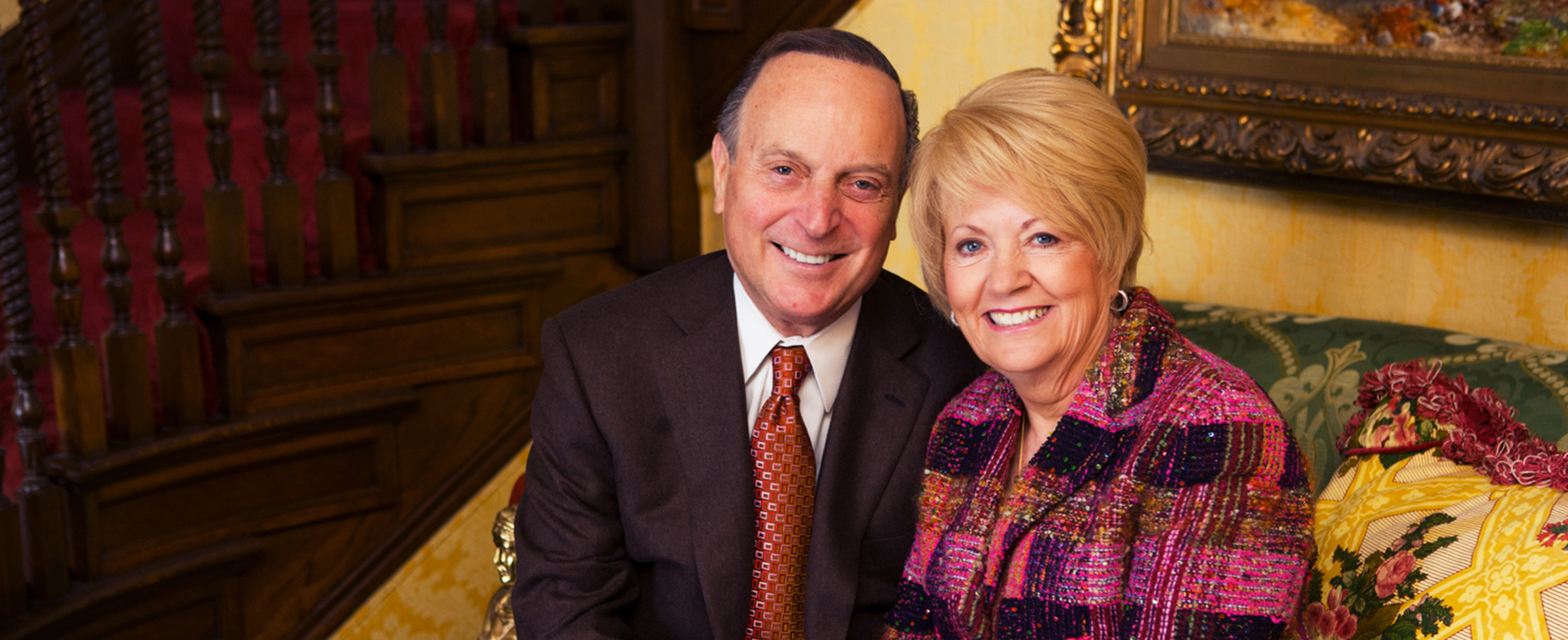A lasting legacy

CAROL MASSARO WAS SICK, her lungs weakening. But even in the months before she died, on Dec. 27, 2018, she was out raising money for the Joseph A. Massaro Jr. Alzheimer’s Research Fund at The Pittsburgh Foundation — the charity she started in memory of the love of her life. “She worked on it to the end,” says the couple’s daughter, Linda Massaro.
Linda marvels at her mother’s determination to fight the disease that took her husband, even as she was dealing with the effects of interstitial pulmonary fibrosis at 79.
Carol established the fund in 2014, four years after her husband received his diagnosis of Alzheimer’s disease. When the memory lapses started, Joe used a notebook to supplement his failing memory on details of daily life. For a while, that simple strategy was enough, but as the months went by, his memory declined more rapidly, and he started to mix up words. He became lost while driving, and he struggled to remember the names of several longtime employees at his construction company.
Each piece of evidence of her husband’s diminishment hit Carol like a physical blow. She had him try every possible treatment — hyperbaric oxygen therapy, which is thought to heal the brain through the inhalation of 100% oxygen in a total body chamber; nicotine patches, which had shown some benefit in patients with mild dementia in small studies; and even coconut oil, which some people believe can either help reverse or even stop the progress of the disease, though this is not backed by any scientific evidence.
Joe, who had been widely known for his dynamic personality and quick-witted engagement with his four children, failed to respond to any of the treatments. Carol’s sadness turned to outrage — and then action. “She was so angry that there was nothing we could do about it,” Linda says, “and moreover, she was shocked at the lack of resources and information available for the hundreds of thousands of families caring for patients with this disease.”
Some 5.7 million Americans have Alzheimer’s, and by 2050, as people live longer, the number is projected to be 14 million, according to the Alzheimer’s Association.
People with Alzheimer’s have two types of critical pathological lesions in their brains. Amyloid plaques, which are clumps of proteins normally deposited outside the neurons, and neurofibrillary tangles, which are deposits of tau proteins localized inside the neurons. Scientists have identified an excess of these plaques and tangles in the brains of Alzheimer’s patients, but they have not yet determined why they develop in the first place.
This is why further research is so important, and why Carol wanted to help fund it. From 2015 to 2018, the fund contributed $893,000 to innovative Alzheimer’s research in Pittsburgh.
When Japanese researchers published a paper in February 2018 announcing development of a simple blood test to detect Alzheimer’s, Dr. Nathan Yates, a chemist at the University of Pittsburgh Alzheimer’s Disease Research Center, wanted to replicate it. He met with Carol and her children about the study, and in May received $100,000 to jump-start the project.
Yates says the money from the Massaro Fund enabled his lab to start testing patient samples six months after he proposed the study. “This could revolutionize the treatment and screening of Alzheimer’s disease,” Yates says. “Developing an inexpensive and accurate test for Alzheimer’s disease has been the Holy Grail of research.” He shared the early promising results with Carol.
“She was always excited to know how things were going,” he says. “She was passionate about making a difference and generous enough to use her resources.”
Fueled by a passion for the cause and blessed with an ebullient personality, Carol became a superstar fundraiser for Alzheimer’s research. “Carol could chat with anyone, and her story would encourage others to share their stories,” says Kelly Uranker, director of the Center for Philanthropy at The Pittsburgh Foundation.
The Longest Table, a dinner party fundraiser, drew 450 people its first year. “Carol was magnetic. She had this charismatic smile and this twinkle in her eye,” says Carol Kinkela, who owns Carabella, a women’s clothing store in Oakmont, and worked with Carol to organize the event three times. The Massaro family held other fundraisers as well.
While Carol always ensured that the events were entertaining and engaging, friends and family say it was always front-of-mind with her that many of the attendees were escaping the havoc Alzheimer’s causes for their loved ones and for themselves as caregivers. In her own life dealing with the disease, Carol was fortunate to be able to have home health aides help her in tending to Joe at the couples’ residence in Oakland. “She had a tremendous amount of empathy for those who were the sole caregivers for their loved ones,” Uranker says. Last year, the fund awarded a $10,000 grant to the Alzheimer’s Caregiver Conference in the Pittsburgh region.
Other Joseph A. Massaro Jr. Alzheimer’s Research Fund grants include $75,000 to support Dr. Edward Allen Burton’s research at the Pittsburgh Institute of Neurodegenerative Diseases in the Department of Neurology at the University of Pittsburgh; $50,000 to fund research by Dr. Alberto Vasquez at the University of Pittsburgh Medical Center; $25,000 for Allegheny Health Network’s Neuroscience Institute’s memory disorder clinic; and $35,000 to Pittsburgh Lifesciences Greenhouse for a new piece of equipment aiding in cognition therapeutics research.
For all her philanthropy, Carol was most passionate about helping to find a cause for Alzheimer’s. As her daughter Linda says, “We learned that every family has a story to tell about the devastation it leaves behind. We need to find the cause and cure.”
Original story appeared in the Forum Quarterly Spring 2019.



